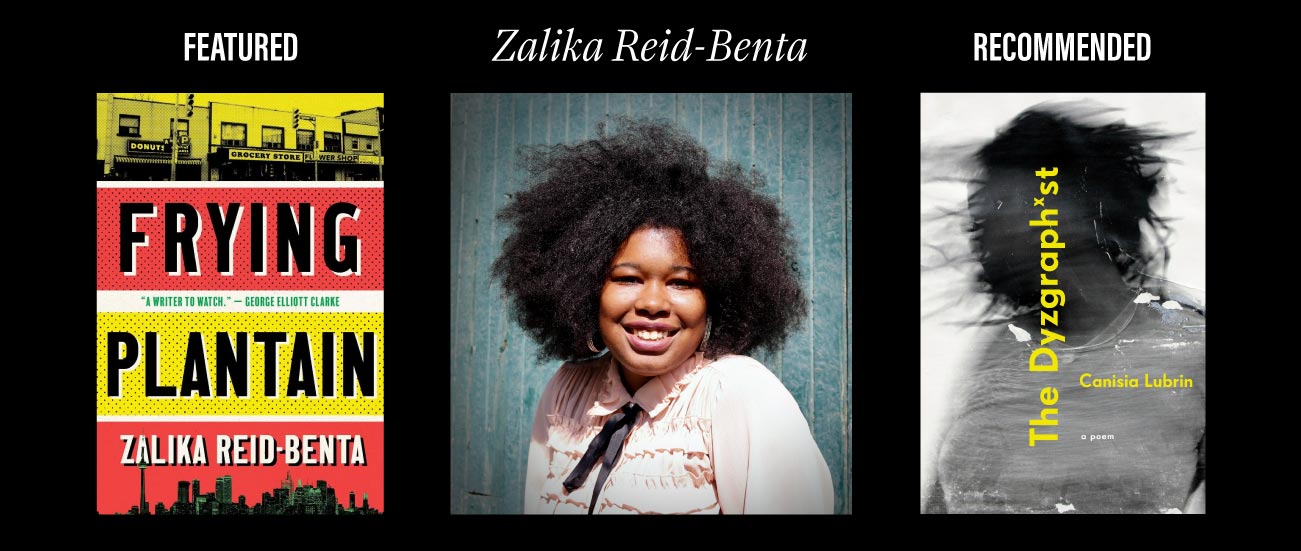
Zalika Reid-Benta’s Featured Book
Frying Plantain
Kara Davis is a girl caught in the middle — of her Canadian nationality and her desire to be a “true” Jamaican, of her mother and grandmother’s rages and life lessons, of having to avoid being thought of as too “faas” or too “quiet” or too “bold” or too “soft.” Set in “Little Jamaica,” Toronto’s Eglinton West neighbourhood, Kara moves from girlhood to the threshold of adulthood, from elementary school to high school graduation, in these twelve interconnected stories. We see her on a visit to Jamaica, startled by the sight of a severed pig’s head in her great aunt’s freezer; in junior high, the victim of a devastating prank by her closest friends; and as a teenager in and out of her grandmother’s house, trying to cope with the ongoing battles between her unyielding grandparents.
A rich and unforgettable portrait of growing up between worlds, Frying Plantain shows how, in one charged moment, friendship and love can turn to enmity and hate, well-meaning protection can become control, and teasing play can turn to something much darker. In her brilliantly incisive debut, Zalika Reid-Benta artfully depicts the tensions between mothers and daughters, second-generation Canadians and first-generation cultural expectations, and Black identity and predominately white society.
Buy the Book:
Owl’s Nest Books | Shelf Life Books
Zalika Reid-Benta’s Recommended Book
I was taken by the complete beauty and the nuance and the striking language of The Dyzgraphxst. It’s a masterful exploration of various themes, and it’s one of those books that I can’t describe because of the rawness and the emotion. It’s a book that covers a lot of things. Maybe that sounds kind of obvious, but I think when you come across a collection or come across a book where you’re just so overcome, that you can’t articulate the amount of emotion within you, that’s really special. That’s something that I feel with Canisia, and I feel like everybody should be reading this book.
The Dyzgraphxst by Canisia Lubrin
Canisia Lubrin returns with a mesmerizing new collection, the follow-up to her breakout book, Voodoo Hypothesis.
The Dyzgraphxst presents seven inquiries into selfhood through the perennial figure Jejune. Polyvocal in register, the book moves to mine meanings of kinship through the wide and intimate reach of language across geographies and generations. Against the contemporary backdrop of intensified capitalist fascism, toxic nationalism, and climate disaster, the figure Jejune asks, how have I come to make home out of unrecognizability. Marked by and through diasporic life, Jejune declares, I was not myself. I am not myself. My self resembles something having nothing to do with me.
Buy the Book:
